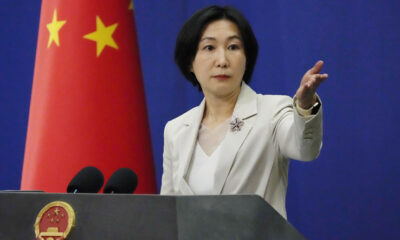Business
NECA Praises Nigeria’s 15% Fuel Import Tariff to Boost Local Refining

The Nigeria Employers’ Consultative Association (NECA) has expressed strong support for the federal government’s recent decision to impose a 15 percent import tariff on specific petroleum products. This move is seen as a crucial step to bolster local refining operations and stimulate economic recovery in Nigeria.
In a statement released on Sunday in Abuja, NECA’s Director-General, Mr. Adewale-Smatt Oyerinde, highlighted the absurdity of Nigeria, a country rich in crude oil, relying heavily on imported petrol and diesel. Oyerinde pointed out that the prolonged importation of these fuels has contributed to the underperformance of the nation’s four government-owned refineries.
Oyerinde stated, “The imposition of the tariff on imported fuel is not only timely but essential.” He emphasized that the policy is designed to enhance local value addition, strengthen domestic refining capabilities, conserve foreign exchange, and support Nigeria’s industrialization efforts.
Economic Implications and Local Production
The NECA chief underscored the importance of this policy as a means to expedite Nigeria’s economic recovery. He noted that promoting local production will strengthen the Naira and attract both domestic and foreign investments. “If implemented effectively, this policy will accelerate Nigeria’s challenging journey toward energy sufficiency and economic development,” he asserted.
Oyerinde added that the import tariff would alleviate pressure on foreign exchange for fuel imports, allowing those resources to be diverted toward other critical needs. “This initiative will assure local manufacturers and investors in the oil and gas industry that the government is committed to supporting their investments,” he said.
Nevertheless, Oyerinde cautioned that the government must take appropriate measures to ensure the policy does not produce unintended consequences. He stressed the necessity of establishing parameters to manage the dynamics of the tariff to avoid price distortions and other adverse effects.
Ensuring Effective Implementation
Addressing the complexities of the Naira-for-crude arrangement is critical for ensuring a consistent supply of crude oil to local refiners. Oyerinde urged the government to tackle these issues promptly to prevent the tariff policy from becoming counterproductive.
He remarked, “A policy designed to promote local refining and ensure regular supplies at the lowest possible price should not become a burden for Nigerians.” He called for a broader focus on boosting local production across various sectors, not just oil and gas, as a priority in government policy.
Such initiatives, he argued, would play a vital role in revitalizing Nigeria’s real economic sector in the medium and long term. Oyerinde concluded by reiterating the urgency of prioritizing local production as a means of achieving sustainable economic growth and stability in Nigeria.
-

 Entertainment2 months ago
Entertainment2 months agoAnn Ming Reflects on ITV’s ‘I Fought the Law’ Drama
-

 Entertainment3 months ago
Entertainment3 months agoKate Garraway Sells £2 Million Home Amid Financial Struggles
-

 Health2 months ago
Health2 months agoKatie Price Faces New Health Concerns After Cancer Symptoms Resurface
-

 Entertainment2 months ago
Entertainment2 months agoCoronation Street’s Carl Webster Faces Trouble with New Affairs
-

 Entertainment2 months ago
Entertainment2 months agoWhere is Tinder Swindler Simon Leviev? Latest Updates Revealed
-

 Entertainment3 months ago
Entertainment3 months agoKim Cattrall Posts Cryptic Message After HBO’s Sequel Cancellation
-

 Science3 weeks ago
Science3 weeks agoBrian Cox Addresses Claims of Alien Probe in 3I/ATLAS Discovery
-

 Entertainment2 months ago
Entertainment2 months agoOlivia Attwood Opens Up About Fallout with Former Best Friend
-

 Entertainment3 months ago
Entertainment3 months agoMarkiplier Addresses AI Controversy During Livestream Response
-

 Entertainment3 months ago
Entertainment3 months agoMasterChef Faces Turmoil as Tom Kerridge Withdraws from Hosting Role
-

 Entertainment4 months ago
Entertainment4 months agoSpeculation Surrounds Home and Away as Cast Departures Mount
-

 World2 months ago
World2 months agoCole Palmer’s Mysterious Message to Kobbie Mainoo Sparks Speculation




















